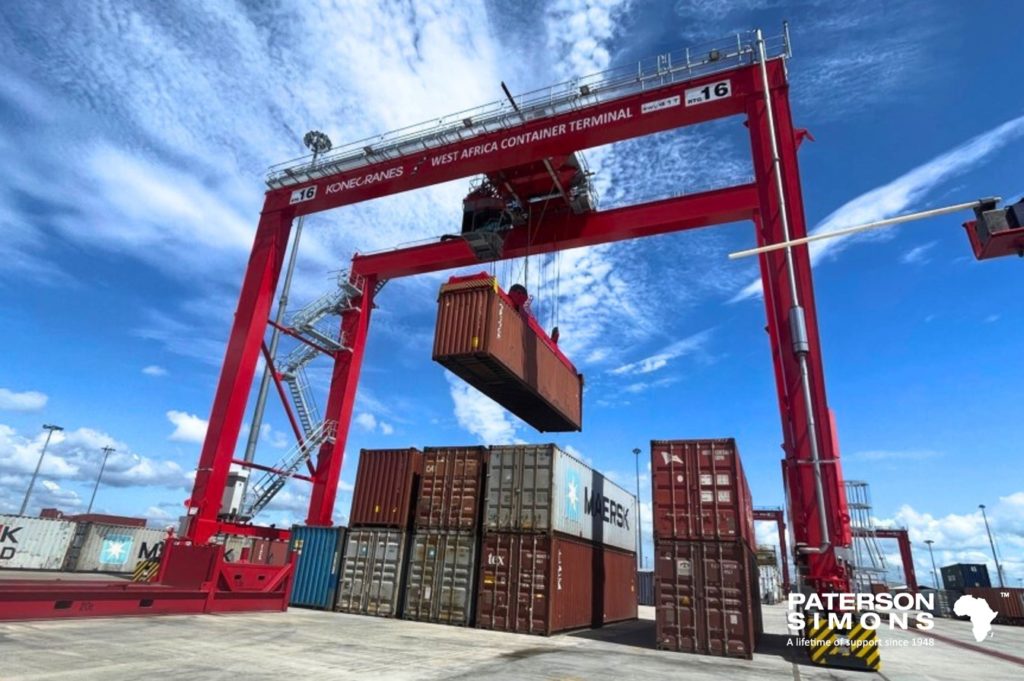Paterson Simons specialises in the delivery and commissioning of Rubber Tyred Gantry (RTG) cranes ensuring seamless integration into port and terminal operations across West & Central Africa. Our meticulous port solutions process encompasses offloading, commissioning, testing, and endurance testing, each stage designed to meet rigorous safety and performance standards. By leveraging advanced equipment and industry best practices, we ensure that every RTG crane is operationally ready and reliable. This comprehensive approach not only enhances efficiency and productivity but also aligns with global standards, solidifying our commitment to excellence in port and terminal operations.
Paterson Simons performs the following tasks in relation to RTG Deliveries and Commissioning:
Offloading:
Offloading RTGs from transport vessels is a critical phase requiring precision and safety. Specialized cranes, typically on the vessels, are used to carefully lift and position the RTGs onto the quayside. Detailed planning and precise coordination are essential to ensure smooth operations, considering factors such as weight distribution, clearance, and adherence to safety protocols.
Commissioning:
After offloading and positioning, the RTGs enter the commissioning phase, involving setup and initial testing. This includes installing necessary components, calibrating systems, and performing initial checks to verify functionality. Each aspect of the electrical and communication systems is meticulously inspected to ensure compliance with specifications and optimal performance. Commissioning adheres to the standards of esteemed organizations like CES (Crane and Engineering) and WCS (World Crane Services), ensuring alignment with global best practices and industry standards.
Testing:
Testing procedures are essential for evaluating the performance and functionality of RTGs. Various tests assess electrical, mechanical, and software systems, including insulation resistance tests, brake torque verification, dynamic tests, and PDS tests. These tests validate the RTG’s readiness for operational deployment, ensuring reliability and safety in demanding port environments.
Endurance Testing:
Endurance testing assesses an RTG’s reliability over prolonged operational conditions. This phase involves simulated operational scenarios, continuous operation under load, and monitoring of critical parameters. Endurance testing provides insights into the RTG’s performance under real-world conditions, guiding adjustments and optimizations for enhanced reliability and efficiency.
Additional Considerations:
Beyond the core phases, additional considerations contribute to successful RTG operations. Comprehensive training for operators and maintenance personnel ensures safe and efficient RTG operation. Detailed documentation of offloading, commissioning, testing, and maintenance activities is also crucial for reference and compliance purposes.
A look at RTG Operations Statistics (Based on Country, over a 5-Year Period):
Nigeria: 28 RTGs delivered and commissioned
Guinea: 4 RTGs delivered and commissioned
Cameroon: 8 RTGs delivered and commissioned
Benin: 4 RTGs delivered and commissioned
Congo: TBC
In the dynamic world of port and terminal operations, the delivery and commissioning of Rubber Tyred Gantry (RTG) cranes are crucial processes that demand meticulous attention to detail.
As your port service partner, Paterson Simons specialises in RTG deliveries across West & Central Africa, exemplifying excellence in this field. Our thorough process, encompasses offloading, commissioning, testing, and endurance testing, ensures that each RTG crane seamlessly integrates into port operations, driving efficiency and productivity to new heights.
By adhering to rigorous safety and performance standards, and leveraging advanced equipment and industry best practices, we guarantee that every RTG crane is operationally ready and reliable. This comprehensive approach not only enhances operational efficiency but also aligns with global standards, solidifying our commitment to excellence in port and terminal operations.
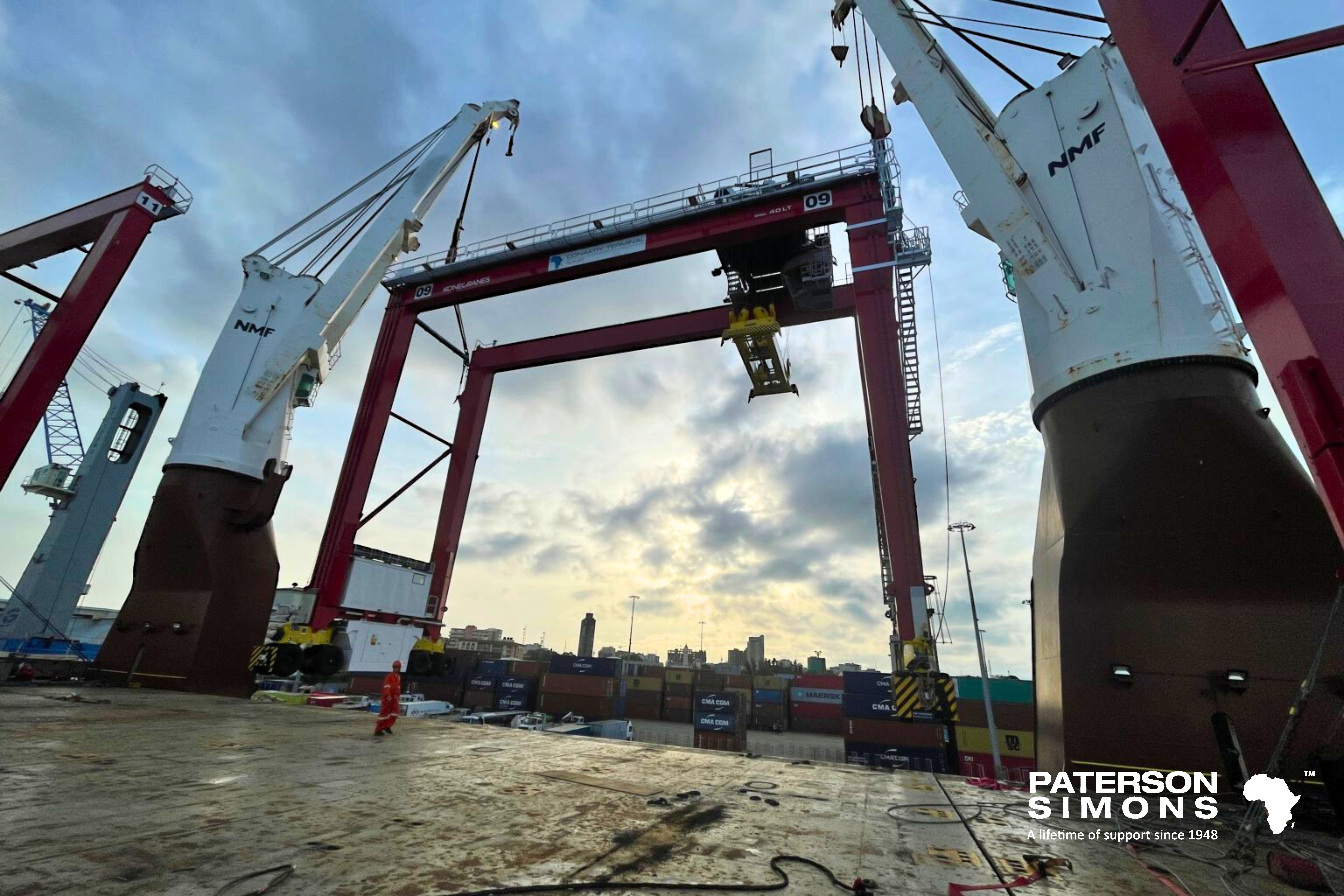
Four new Konecranes Rubber Tyred Gantry (RTG) Cranes were successfully delivered to Conakry Terminal, a subsidiary of Bolloré Ports, on 2 November 2021.
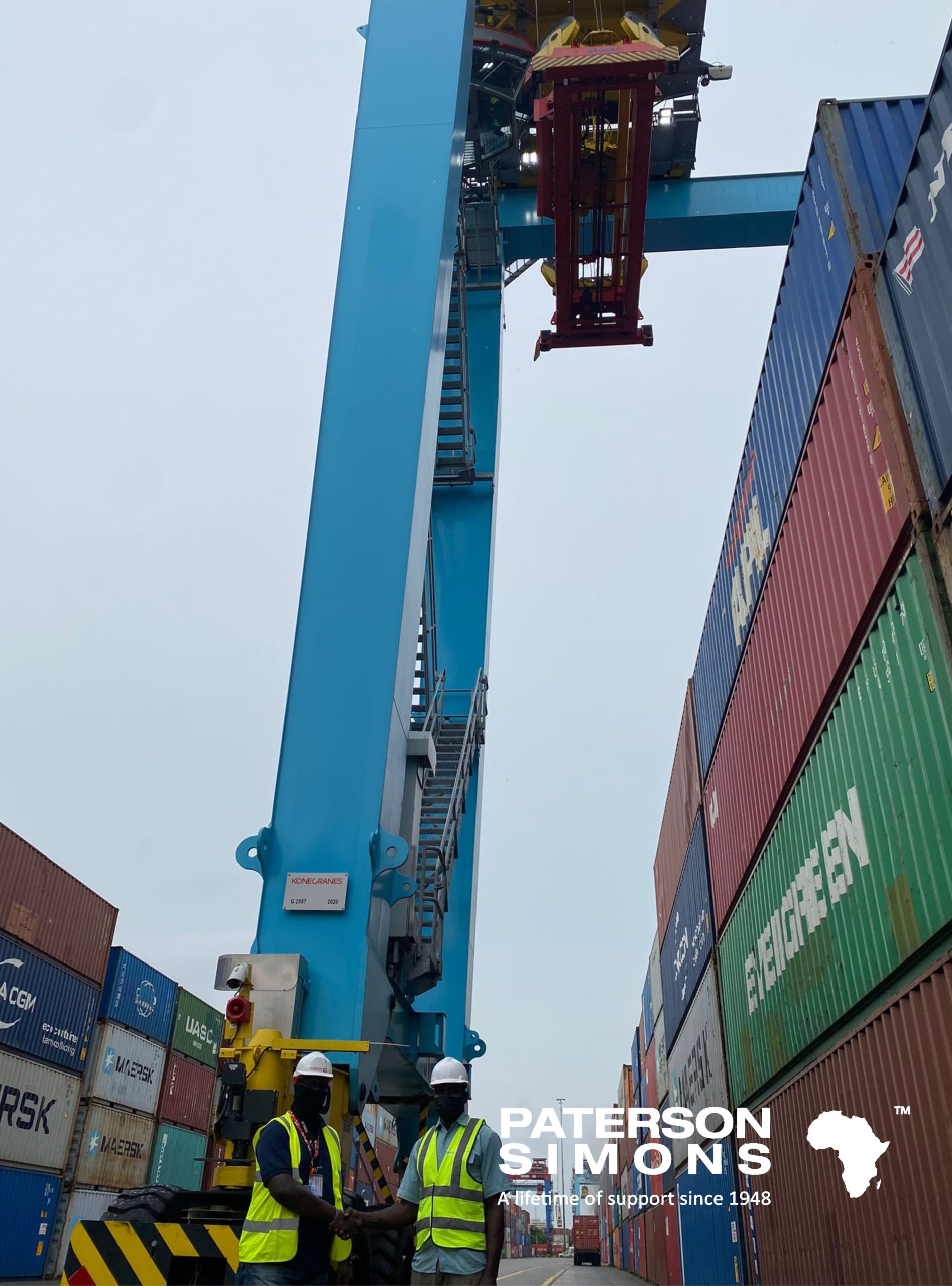
Six Konecranes 16W Rubber Tyred Gantry (RTG) Cranes were commissioned and handed over to APMT Apapa in September 2021 by the Paterson Simons team. These 6 RTGs add to the existing fleet of Konecranes RTGs at APMT Apapa.
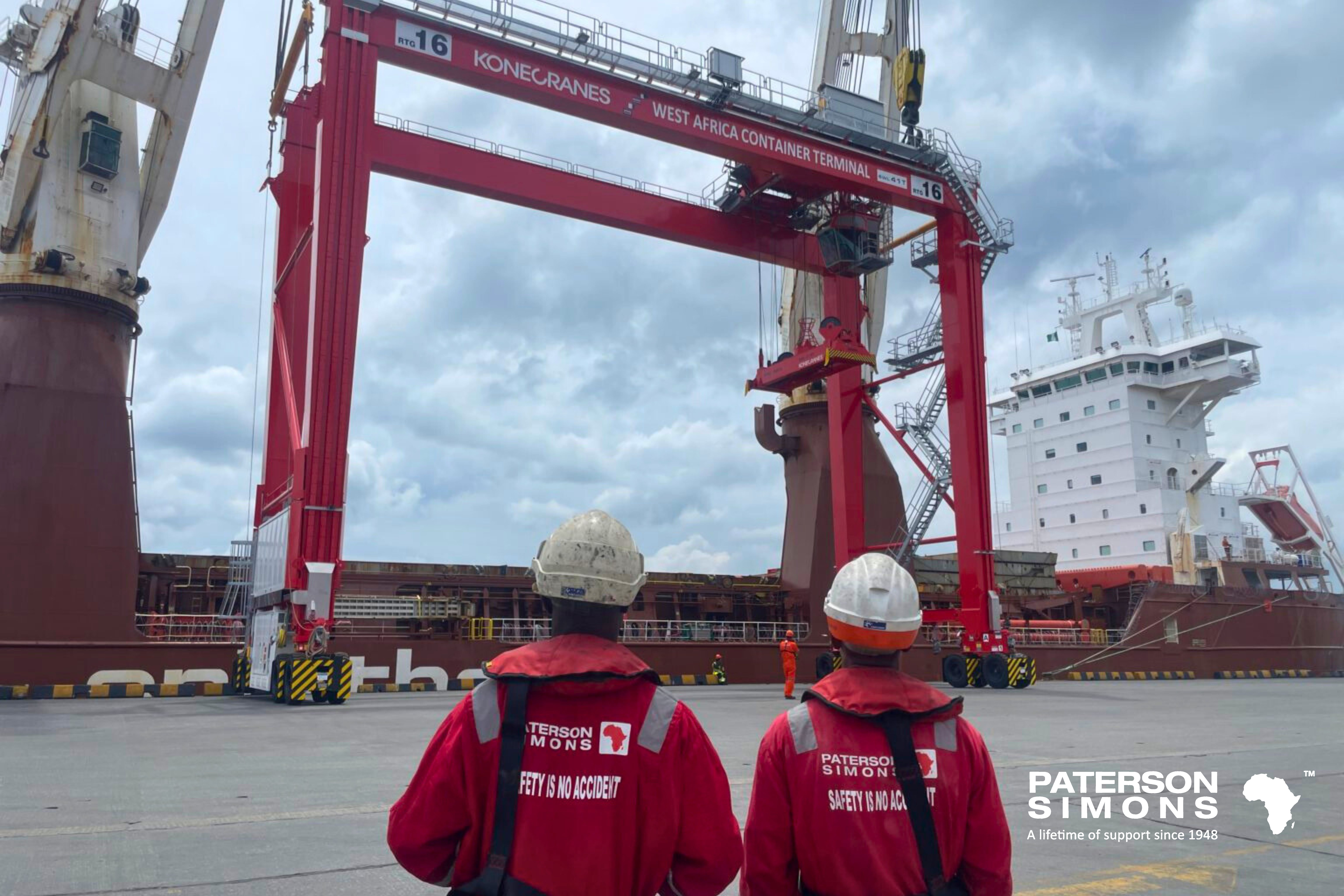
Two Konecranes 16W Rubber Tyred Gantry Cranes (RTGs) at West Africa Container Terminal (WACT) in Onne, Nigeria.
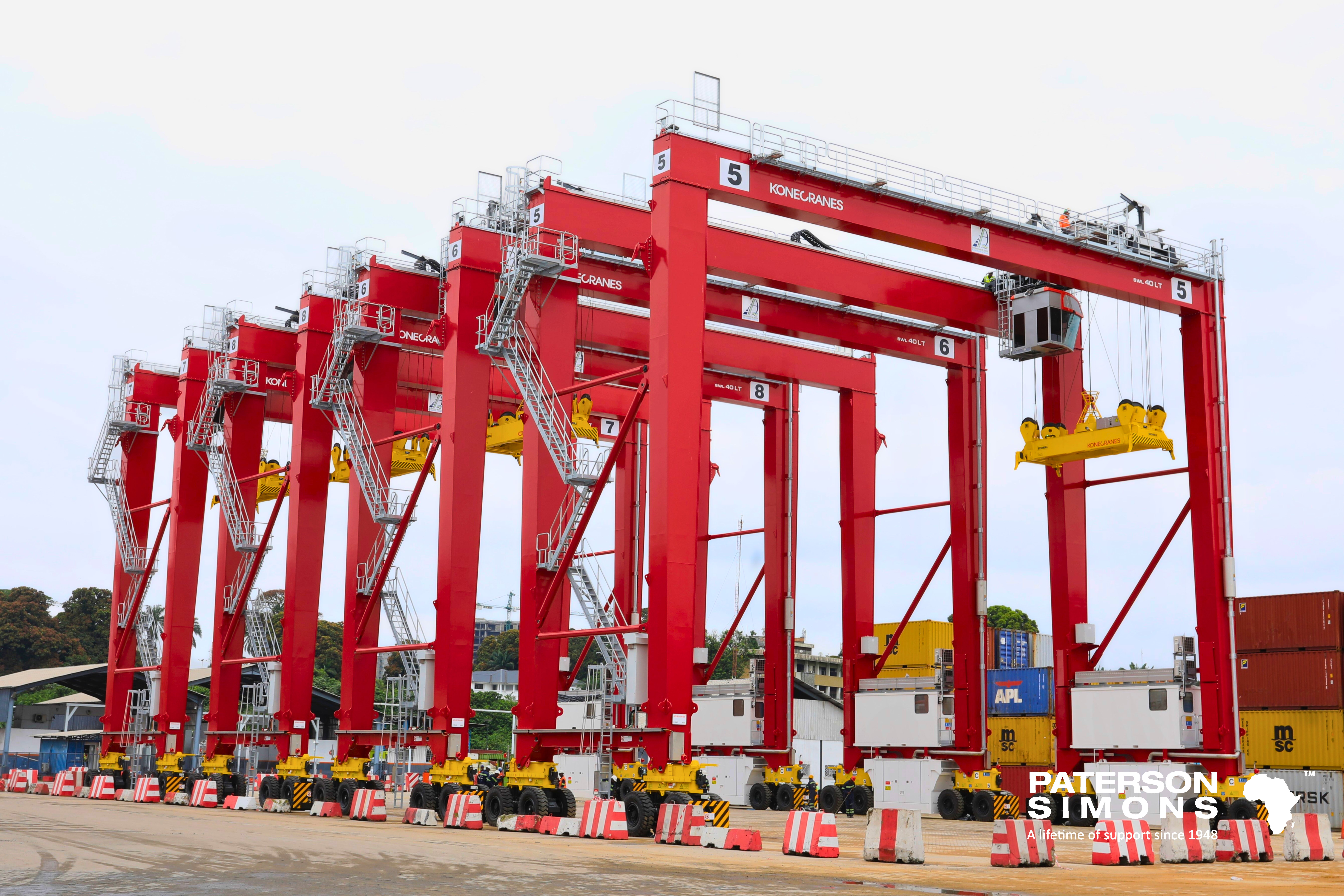
Konecranes RTGs at La Régie du Terminal à Conteneurs (RTC Douala) Cameroon

Paterson Simons recently completed successful theoretical and practical training, conducted in French, along with the commissioning and offloading of four new Konecranes 16WA RTGs at Benin Terminal S.A. in Cotonou.


